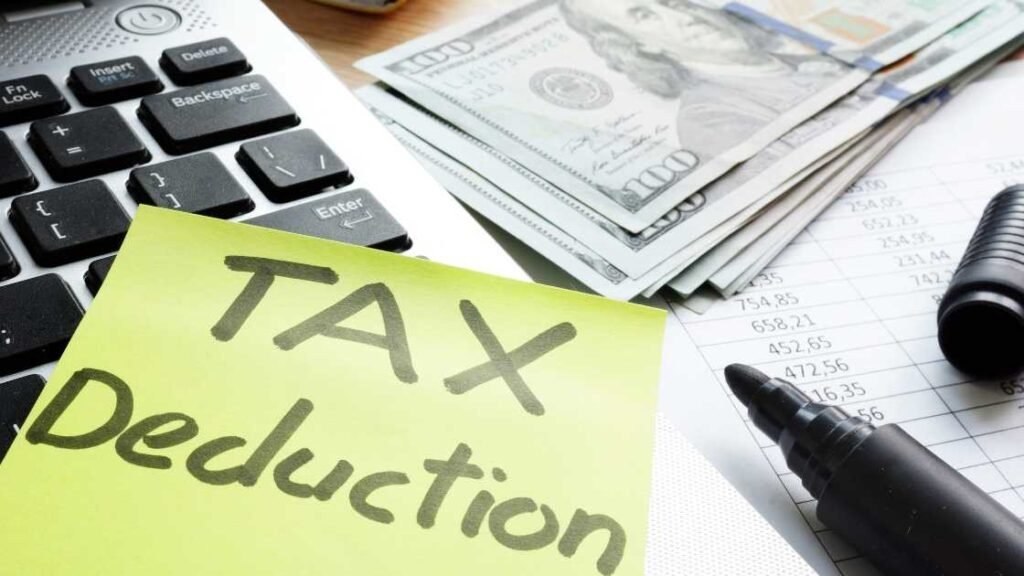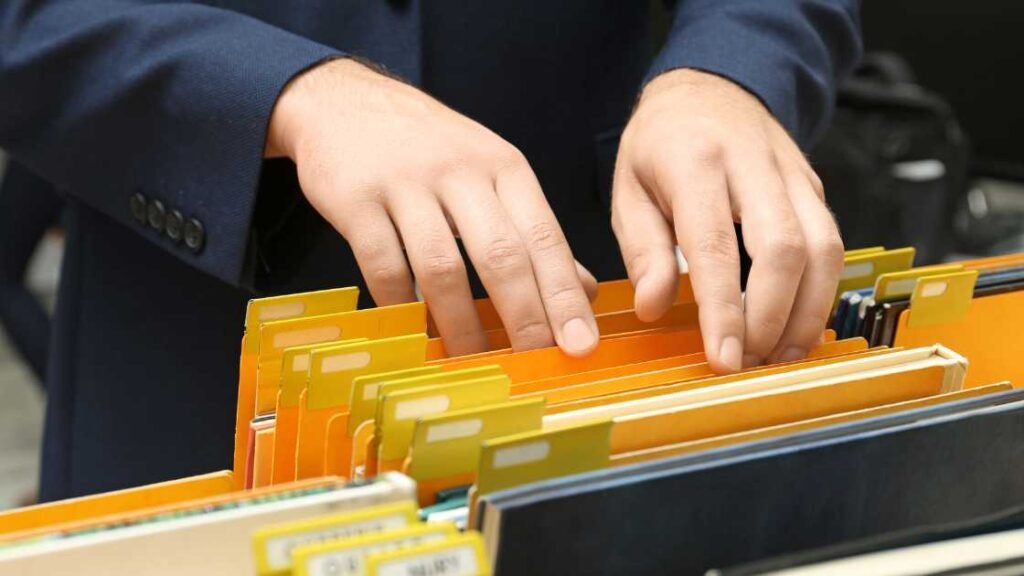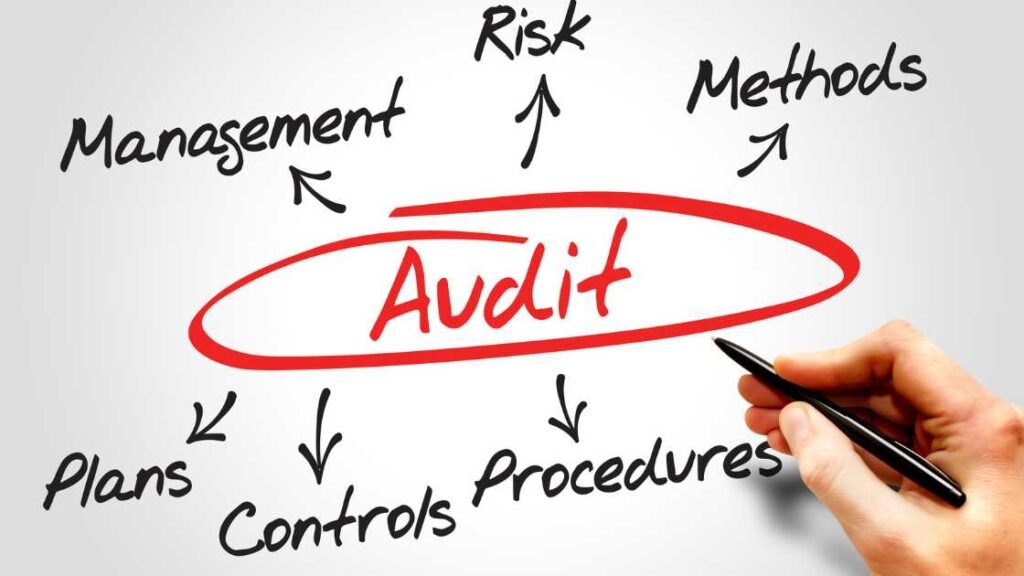Travel expenses are tax-deductible for self-employed individuals if they are ordinary, necessary, and directly related to their business. Specific criteria must be met to qualify for these deductions.
Navigating the complexities of tax deductions can be challenging for self-employed professionals. Understanding which travel expenses you can write off on your taxes is essential to maximizing your deductions and reducing your taxable income.
Self-employed individuals can deduct a wide range of travel expenses, including airfare, lodging, car rentals, and even a portion of their meals.
The key is to ensure these expenses are for business purposes, not personal leisure. Accurate record-keeping and knowing the IRS guidelines are paramount for substantiating your claims and staying compliant with tax laws.

By leveraging these deductions wisely, self-employed workers can effectively lower their tax burden while investing in the growth of their business. Are Travel Expenses Tax Deductible for Self Employed individuals? It’s essential to explore this question to optimize your tax strategy and financial outcomes.
Table of Contents
Toggle- Eligibility For Travel Expense Deductions
- Qualified Travel Expenses
- Record Keeping For Tax Deductions
- International Travel And Tax Deductions
- Home Office Impact On Travel Deductions
- Travel Deductions And Vehicle Use
- Audit Risks And Travel Deductions
- Maximizing Deductions With Strategic Planning
- Irs Guidelines And Changing Tax Laws
- State Differences In Travel Expense Deductions
- Frequently Asked Questions On Are Travel Expenses Tax Deductible For Self Employed
- Conclusion
Eligibility For Travel Expense Deductions
What travel expenses are tax-deductible is key for self-employed individuals. It can save them a lot of money. Knowing the rules makes a big difference during tax season. Read on to see if you qualify for these money-saving deductions!
Criteria For Self-employed Tax Deductions
For the self-employed, tax deduction criteria are pretty straightforward. Business trips must be ordinary and necessary for your work. Trips can’t be extravagant. Keep records to back up your claims.
- Away from home: Travel must take you away from your regular area of business.
- Longer than an ordinary day: Your trip should require rest to perform your work duties.
- Work-centric agenda: The main purpose of travel should be for business activities.
Record your expenses. Use a notebook or an app. Separate your personal costs from your business ones. This makes it easier when tax time comes.
Distinguishing Between Business And Personal Travel
Figuring out what counts as business travel and what doesn’t can be tricky. A trip can have both business and personal parts.
| Business Travel | Personal Travel |
|---|---|
| Going to conferences | Adding vacation days to a business trip |
| Meeting with clients | Visiting family during a work trip |
| Traveling to a work site | Sightseeing on your days off |
Split the expenses. If a trip is mainly for business but includes some personal days, you only deduct the business portion. A day spent on business tasks counts as a business day. Traveling days usually count as business days too.
Qualified Travel Expenses

For self-employed individuals, navigating tax deductions can be complex. It is crucial to understand what constitutes a qualified travel expense when filing taxes. This section dives into what the IRS considers deductible. We will explore transportation costs and eligibility. We will also clarify details regarding accommodation and meals.
Transportation Costs Eligibility
Self-employed taxpayers can deduct certain transportation expenses. This includes travel by airplane, train, bus, or car. To qualify, the primary purpose of the trip must be business-related. Below are examples of transportation costs that may qualify:
- Airfare for business meetings out of town
- Train tickets to attend a conference
- Bus fares for traveling between client locations
- Mileage for car travel to and from business destinations
Keep records of travel dates, mileage, and business purposes to substantiate deductions.
Accommodation And Meals: What’s Covered
Lodging and meals during business travel are also tax-deductible. There are some limitations:
| Lodging | Meals |
|---|---|
| Hotel stays directly related to business activities | 50% of meal costs while traveling for business |
Entertainment expenses are no longer deductible as of 2018. Essential tips for deductions include:
- Keep itemized receipts for accommodation and meals.
- Ensure overnight stays are necessary for the business activity.
Meticulously documenting each expense is key to a smooth tax filing experience.
Record Keeping For Tax Deductions

Self-employed individuals often wonder about travel expenses and tax deductions. Proper record-keeping plays a critical role in ensuring you can claim these deductions. Here, we delve into the best ways to keep track of your travel expenses for tax time.
Importance Of Keeping Receipts
Receipts are your proof of travel expenses. The Internal Revenue Service (IRS) requires documentation to support deductions. Without receipts, you risk losing valuable tax benefits. Always save your receipts for:
- Flights
- Hotels
- Car rentals
- Meals
- Other travel-related costs
Best Practices For Logging Travel Expenses
Consistent logging is essential for accurately reporting expenses. Use these best practices:
- Date every transaction. This shows when the expense occurred.
- Describe the purpose of the expense. Connect it to your business activity.
- Check payment methods. Credit card statements can back up receipts.
- Use apps or software designed for expense tracking.
Remember, organizing receipts and logs reduces stress during tax season and secures the deductions you’re entitled to. Start simple: keep a dedicated folder or a digital cloud-based tracker for your travel expenses. This habit may save you money and prevent headaches with the IRS.
International Travel And Tax Deductions

Self-employed individuals often travel across borders to grow their businesses. Appreciation of how these international expenses work during tax season is key. Tax-deductible travel expenses can lower your taxable income. Yet, rules for international travel are complex. Read on to know what counts when you’re miles from home.
Navigating Deductions For Overseas Business Trips
Business trips abroad have specific tax considerations. Self-employed travelers can include many costs:
- Flights – Economy fares are deductible.
- Hotels – Costs for business days are covered.
- Transport – Taxis and car rentals qualify.
- Meals – 50% of food expenses are deductible.
- Conference fees – If relevant to your business.
Keep detailed records. Mix business with pleasure wisely; only business-related costs count. Pre-trip planning is vital.
Exchange Rates And Expense Reporting
When filing taxes, report all expenses in U.S. dollars. Convert foreign expenses correctly. Use the exchange rate from the date of the expense. For simplicity, the IRS allows using:
- The yearly average exchange rate.
- The rate from your bank statement.
- IRS yearly published rates.
Document the method used for conversion. Credit card statements are useful here. They show the rate applied to international expenses. This ensures accurate reporting.
Home Office Impact On Travel Deductions

Working from home? If you’re self-employed, appreciation of how your home office influences travel deductions is key. Let’s dip into the details that help you save money.
How A Home Office Affects Travel Expense Claims
If you have a home office, you may view it as your main place of business. This affects which travel expenses are deductible. Travel from your home office to other business locations can often be claimed.
- A trip from your home office to meet a client is often deductible.
- Heading to a business conference from your home qualifies too.
- Even picking up office supplies could count.
Always keep records. Receipts and mileage logs support your claims. It’s crucial to prove these trips are business-related.
Determining The Starting Point For Travel
Where your travel starts often determines if it’s deductible. A home office as the main place of business usually makes your home the starting point.
| Location | Expense Eligibility |
|---|---|
| Home Office | Travel to other business places is typically deductible |
| Secondary Business Location | Travel may not be deductible |
Map out your trips accurately. Tools like GPS apps can track distances effectively. This will help you claim the correct amounts.
Travel Deductions And Vehicle Use
If you’re self-employed, appreciation tax deductions are key. Few areas offer more opportunities than travel and vehicle expenses. These deductions can reduce your taxable income significantly. It’s vital to know what you can deduct and how to do it right.
Standard Mileage Vs. Actual Expenses
Two methods exist to calculate vehicle deductions: Standard Mileage and Actual Expenses.
- Standard Mileage: The IRS sets a per-mile rate. Multiply your business miles by this rate.
- Actual Expenses: Deduct actual costs of operating the vehicle. This includes gas, repairs, and insurance.
Choosing between the two depends on which gives the greater deduction. Record-keeping is crucial for both. Always track your miles and expenses carefully.
Leased Vehicles And Tax Deductions
Deducting expenses for leased vehicles work differently. You can still use the Standard Mileage method.
But, if using Actual Expenses, consider these rules:
| Lease Period | Percentage of Lease Payments Deductible |
|---|---|
| Year 1 | Percentage based on business use |
| Year 2 and on | Include a certain amount as income and deduct the business portion |
Different rules can apply based on lease length and vehicle type. Always refer to the latest IRS guidelines or consult with a tax professional.
Audit Risks And Travel Deductions

Travel expenses can offer self-employed individuals significant tax deductions. Yet, approaching these claims requires care. A misstep could increase audit risk. Proper appreciation and documentation are vital to maintain compliance with IRS rules.
Red Flags In Travel Expense Claims
Travel expense claims are scrutinized by the IRS. Some aspects may trigger audits. Common red flags include:
- Lack of a clear business connection – Travel must serve a business purpose.
- Excessive deductions – High expenses compared to income may attract attention.
- Rounded numbers – Too many rounded figures can seem inaccurate.
- Combining work with leisure – Personal activities on a trip must be clearly separated.
How To Prepare For A Possible Audit
Being prepared can ease the stress of a potential audit. To safeguard your deductions, consider these steps:
- Keep detailed records – Every expense must have corresponding documentation.
- Retain receipts and logs – Proof of expenses like hotel bills, and conference fees, is essential.
- Separate personal and business expenses – Use different credit cards or accounts to track.
- Understand IRS requirements – Stay updated on tax laws related to self-employment travel.
With accurate record-keeping, claiming travel expenses becomes straightforward. Documentation and knowledge serve as the best defense in an audit.
Maximizing Deductions With Strategic Planning
Self-employed individuals often encounter a blend of personal and business expenses while traveling. These costs’ tax implications can yield significant financial benefits. Strategic planning becomes an essential tool in maximizing deductions. By carefully orchestrating trip specifics to align with tax rules, self-employed professionals can benefit greatly.
Timing Trips For Optimal Deductions
Timing is a vital factor in maximizing tax deductions. Scheduling trips to coincide with business activities can amplify deductible expenses. Here’s how to approach it:
- Plan trips around client meetings or conferences.
- Stay updated on tax laws for the best timing.
- Record the purpose of each trip diligently.
By aligning travel with business engagements, you ensure the primary purpose of your trip qualifies for deductions.
Combining Business And Personal Travel Wisely
Merging business with leisure demands smart tactics. If a trip serves both purposes, you can still claim some expenses:
- Keep business days distinct from personal ones.
- Document all business-related activities.
- Track and segregate expenses between business and personal.
Remember, only the business portion falls under deductible expenses. Proper documentation is crucial to substantiate claims.
Irs Guidelines And Changing Tax Laws

In the world of tax deductions, the IRS guidelines are the playbook for every self-employed individual’s tax strategy. Changes in tax laws can have a significant impact on what travel expenses are deductible. Staying up-to-date with the latest information is vital to maximize deductions and ensure compliance with tax regulations. Here’s what you should know about IRS guidelines and the changing landscape of tax laws regarding travel expenses.
Staying Informed On Irs Updates
Keep a close watch on the IRS official website or sign up for newsletters. Doing so ensures that you’re always informed about the most recent guidelines. The IRS releases publications such as Publication 463 (Travel, Gift, and Car Expenses) that outline which expenses are deductible. For the self-employed, this includes business-related travel costs such as transportation, lodging, and meals.
- Check for annual updates on deductible amounts.
- Review FAQs and articles on the IRS site for clarification.
- Consult with a tax professional regularly.
Impact Of Recent Tax Reforms On Travel Deductions
Recent tax reforms can alter how you deduct travel expenses. These changes may increase the number of deductible expenses, or limit them. Here’s how the latest tax reforms may affect your travel deductions:
| Tax Reform | Impact |
|---|---|
| Tax Cuts and Jobs Act | Modified deductibility of entertainment expenses, but preserved travel expense deductions. |
| IRS Tax Code Section 179 | Expands qualifying expenses, which may include certain travel costs. |
- Review your travel expenses against the most current tax reforms.
- Adjust your tax strategy to align with these new regulations.
- Evaluate whether your travel expenses are still fully, partially, or no longer deductible.
State Differences In Travel Expense Deductions
Self-employed travelers often wonder about tax deductions. State differences can impact these deductions. Knowing your state’s rules is vital.
Navigating Various State Tax Codes
Each state has unique tax codes. These affect your travel expense deductions. You need to understand your state’s tax laws for accurate filing.
- Research your state to find specific travel deduction rules.
- States like California have specific guidelines that differ from others.
- Some states do not conform to the federal tax code, leading to varied deduction eligibility.
- Keep detailed records to help with state-specific filing.
When State And Federal Deductions Differ
In cases where state and federal rules differ, filing becomes complex. You could have different deduction amounts for each.
| Aspect | Federal Deduction | State Deduction |
|---|---|---|
| Travel Expense | Allowed | Varies by state |
| Documentation | Required | Required (may differ) |
| Limitations | Subject to 50% | Depends on state |
Align your expenses according to both sets of rules. Use separate worksheets if needed.
Consult a tax professional. They will ensure you get every deduction you’re eligible for.
Frequently Asked Questions On Are Travel Expenses Tax Deductible For Self Employed
Can Self-employed Claim Travel Expenses On Taxes?
Yes, self-employed individuals are able to deduct travel expenses from their taxes. These expenses must be related to business and considered ordinary and necessary. Lodging, airfare, and car rentals are common examples.
What Travel Expenses Are Deductible For Self-employed?
Self-employed persons can deduct various travel expenses including airfare, hotels, rental cars, and meals. To qualify, the travel must be primarily for business and away from the taxpayer’s home area.
How To Claim Travel Deductions As Self-employed?
To claim travel deductions, self-employed individuals should keep detailed records of their travel expenses. They must file IRS Form 1040, Schedule C, and ensure that all deductions are business-related and properly documented.
What Is The IRS Mileage Rate For Self-employed?
For 2023, the IRS standard mileage rate for business travel is 58. 5 cents per mile. Self-employed individuals can choose to use this standard rate or actual vehicle expenses for their deductible travel costs.
Conclusion
Navigating tax deductions as a self-employed individual doesn’t have to be daunting. With clear guidelines and diligent record-keeping, you can confidently claim travel expenses. Remember to consult with a tax professional for personalized advice. Embrace these strategies to ensure your next tax season is as stress-free and beneficial as possible.



